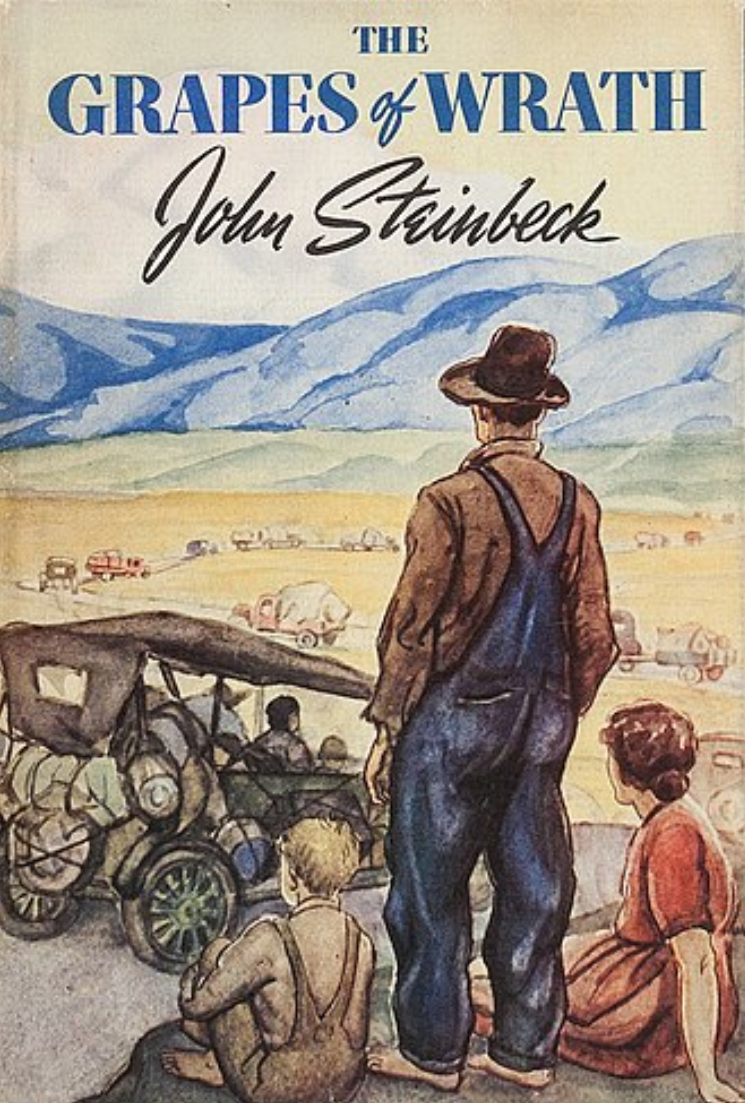- The Grapes of Wrath tells the story of the Joad family, hardworking farmers from Oklahoma, who leave to escape the Dust Bowl of the 1930s in what is known as the Okie Migration. They travel to California, where they struggle to find work – the economy has collapsed in the Great Depression and they must compete for limited jobs with the 2.5 million other people who also fled the Dust Bowl.

Published by The Viking Press (1939).
How is this related to climate?
- The Dust Bowl was a period of prolonged and extensive drought in the Great Plains region of the United States during the 1930s. The drought caused severe dust storms, making life difficult and forcing people to leave the region. The Dust Bowl was exacerbated by several factors and had far-reaching social and economic consequences.
- The 1930s was an exceptionally dry period in The Great Plains, which has a naturally dry or semi-arid climate. This drought may have been caused by highly variable global sea surface temperatures (SSTs) or random atmospheric variability during this time period. Regular rainfall levels were reestablished in the region in 1939, ending the Dust Bowl.
References and additional resources
- History.com Editors. “Dust Bowl.” History. 2009. https://www.history.com/topics/great-depression/dust-bowl.
- Moore, G. “Black Blizzards.” The Friday Footnote. 2020. https://footnote.wordpress.ncsu.edu/2020/07/23/black-blizzards-7-24-2020/.
- Oblack, R. “The 1930’s Dust Bowl Drought.” ThoughtCo. 2019. https://www.thoughtco.com/1930s-dust-bowl-drought-3444382.
- Pfeiffer, L. “The Grapes of Wrath.” Encyclopedia Britannica. 2010. https://www.britannica.com/topic/The-Grapes-of-Wrath-film-1940#ref1078811.
- The Editors of Encyclopedia Britannica. “Dust Bowl.” Encyclopedia Britannica. 1998. https://www.britannica.com/place/Dust-Bowl.
